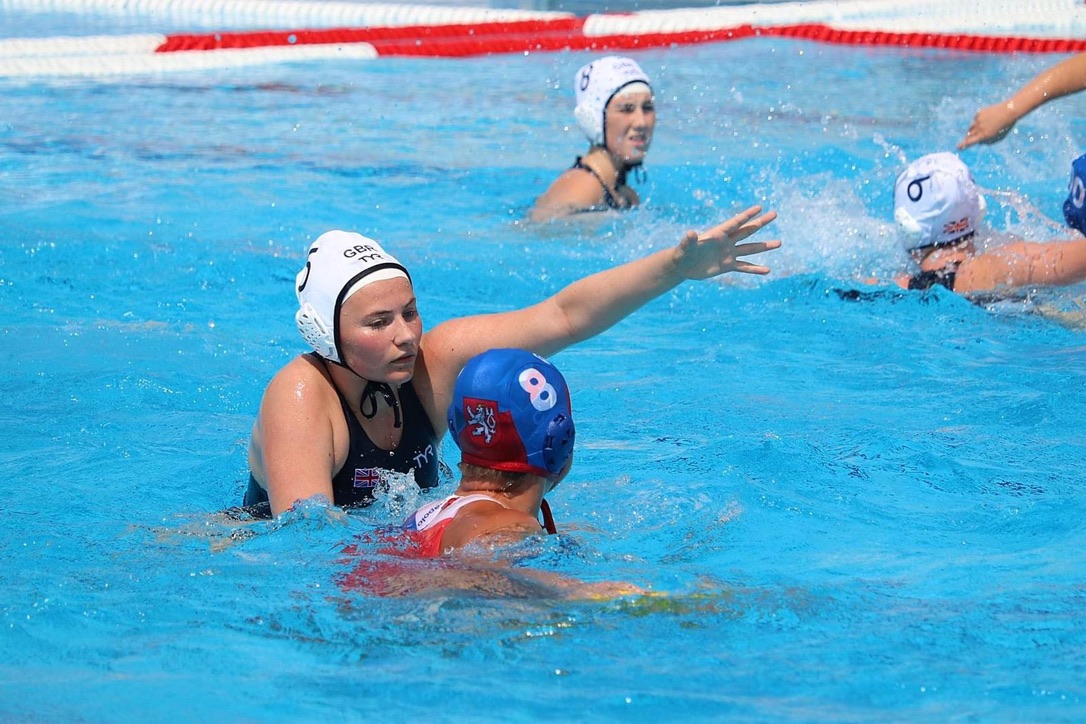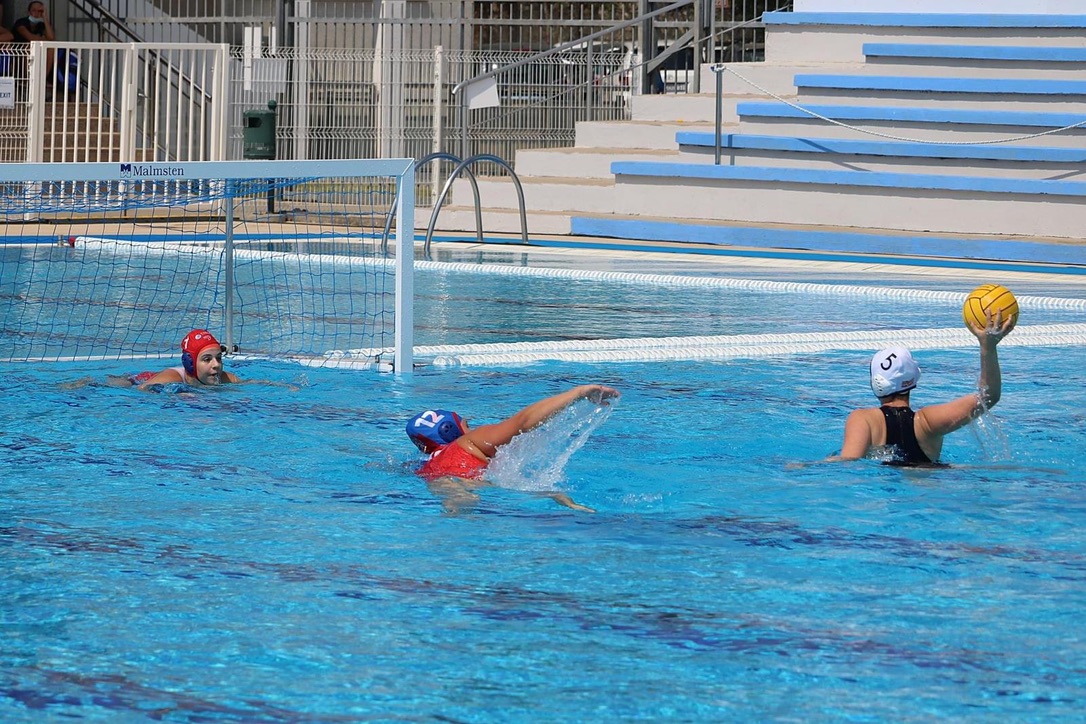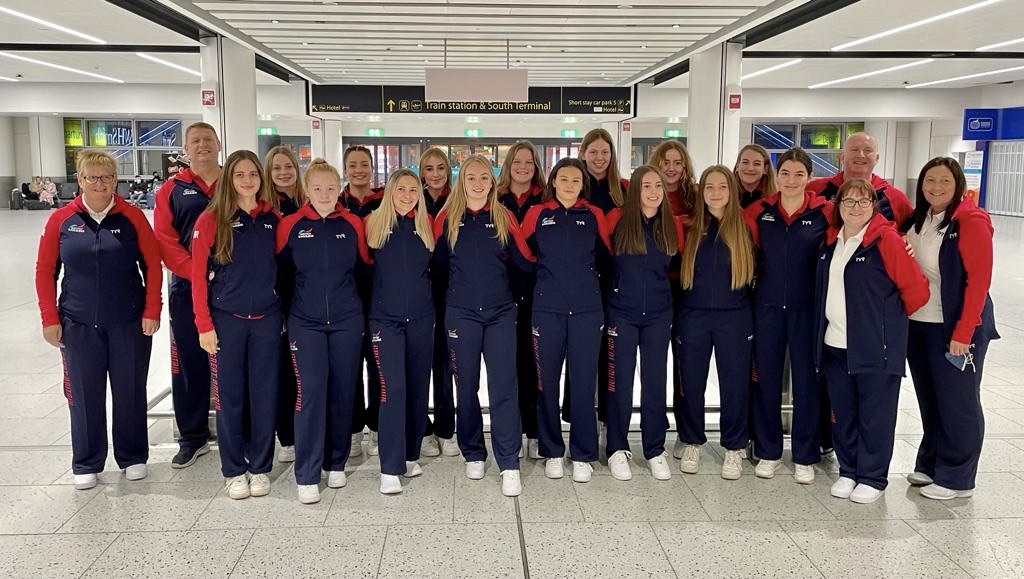We recently caught up with Sports Scholar and University of Kent student Lucy-Mai Helliwell about her unique sport, Water polo, and what encouraged her to study at Kent and become a sports scholar.
What were your sporting ambitions whilst growing up and before arrival at University?
When I was growing up I always strived to achieve big within my sporting career. My biggest ambition was to get into the Great Britain national squad for my age group and to go to the European Championships.
What are you studying at Kent and what are your career ambitions after graduation?
I am studying a Marketing degree and I hope to have a career in marketing and PR once I have finished my degree.
Your course includes a year in Industry, what options are you exploring for this and what do you hope to gain experience doing?
I chose to add a year in industry as I believe it is important to gain high quality experience so that when I have graduated I have some previous relevant experience to help me achieve a suitable job.
As a local student, what attracted you to study and stay in Kent when exploring your University options?
I chose to stay local in Kent because of my sport and the course. As I train many hours through the week I felt it would be more beneficial to keep my regime local so that I know I’m able to get my training completed to a high level. Additionally, as a business student the Kent business school captured my eye for its high level of teaching and its many accreditations.
Can you comment on your earliest memories of swimming and any competitions you were involved in at a young age?
My earliest memories competing in my first big competition with South East region and being really nervous however as soon as I got into the pool I felt excited and ready to show my ability.
Your sport is certainly unique and you are one of few Water Polo Scholars to be part of the Scholarship Scheme at Kent – how did you get first get into your sport and how old were you when you first competed?
I first got into the sport through my local swimming club. They had a Water polo section and me and my sister always wanted to join, one day we tried it out and we never looked back. I believe I first competed at the age of 10.
Can you comment on you rise through junior competition and the honour of represented the U17 Great Britain Water Polo Team at the European Championships in 2021?
Throughout my junior career it was a highly competitive environment. This meant I was training so many hours through the week in order to stay as active and strong as I could to be able to differ from my fellow teammates. I remember getting the email to say I had been chosen to represent Great Britain at the European championships and I was overwhelmed with emotion. The main feeling of achievement and that all of my hard work had paid off.
Can you explain the basic format of Water Polo for someone who has never played, how many players play on each side and how long does a match last, how deep is the pool, how do you score, etc?
Water polo can be a complex sport to understand. Each team has up to 13 players on the pool side during a game, this comprises of 7 players in the water and the rest waiting to be substituted into the game. Therefore you have 6 outfield players and 1 goalie. A match normally is four quarters of eight minutes, however the clock gets stopped during the match for any fouls or advantages the referee may give. This means a single match can be about an hour in length when you add in time outs and rest breaks during quarters. The pool depth can range but usually it’s always 6ft deep therefore you have to tread water the entire duration of the match. In the game a goal is scored by the attacking team shooting in the oppositions goal however with a team of defenders this is not an easy objective it requires a lot of accurate passing, skill and being able to read the game.
Water Polo is often described as being similar to Football and Basketball, would you describe it in the same way and can you comment on the physical fitness and skills required to play?
Often people associate Water polo similar to these sports however Water polo is very different as it’s a contact sport. The physical fitness needed for this sport has to be a very high level. Building skills takes many years of practise, hard work and dedication.
Can you explain the different Team formations in Water Polo and whether you play in a particular position or your role in the Team?
There are a range of different positions within the Water polo game. You have a centre back, centre forward, right side and left side positions. Some Water polo positions are suited to players speed and strength.
I have always played on the right side which is normally suited to left handed players however I enjoy that position despite that.
Water Polo has a strong history in Europe, who are the big nations in Europe and the World and do you have any experience playing these nations at Junior or senior level?
There are many tough nations in Europe as well as the rest of the world so every team can be a threat. I’ve had many experiences playing in European competitions throughout my Water polo career and this has allowed me to visit many different countries because of that.
Your sport has had limited exposure in the UK, what is the Water Polo Competition structure and which team(s) are you currently representing?
In the UK waterpolo is self funded which means players pay to play the sport which can be very expensive. The structure of Water polo to build up can be through the levels of local, county, regional, national and international. My team is a London based club Otter who have been national champions many times.
Water Polo has a long history at Olympics and will be featuring again at the Paris Games next year – will Team GB be competing and who will be the big teams aiming for medals next summer?
Unfortunately team GB won’t be at the 2024 Olympics however the aim to go in future games is definitely big. USA, Hungary, Spain, Russia where top teams at the last Olympics in Tokyo so they will be aiming for gold.
Despite the long Olympic History – Women’s Water Polo only debuted at the Sydney Games in 2000. Can you comment on the current strength of Women’s Sport in general in the UK and with respect to Water Polo, comment on whether the opportunities and investment are more equal now?
Women’s sport is definitely progressing and more women are dominating sport which is amazing. Water polo is a great team sport to be a part of. Sporting opportunities could always be improved and developed but it is more equal than previous years as it should be.
The current energy crisis has seen many UK local authority pools close or reduce their opening hours or access to pools, has this negatively impacted your training and preparation and has there been a wider impact on the sport as a whole?
There has definitely been an impact because of energy and cost of living troubles happening in the UK. Many pools have significantly reduced their hours and have become more expensive. Similarly to this coronavirus has also had lasting impacts with a big age gap between upcoming players that didn’t have the opportunities to try the sport and process.
If a young spectator is inspired by Water Polo in Paris next summer, how would they go about getting involved and exploring the sport in this country?
Look for local clubs in your area, go along, join in, have fun and enjoy the sport. Many clubs have junior sections as well as women’s and men’s and this allows for more structured Water polo developing higher levels of play.
How important is physical activity and sport in complimenting your studies at University and what advice would you give to new students arriving next year and looking to engage in a new sport for the first time?
It’s so important for your physical and mental well-being to be a part of a sport I find, especially as Water polo is a team sport. The social aspect is great for new students because of the socialising, making new friends and this helps with confidence in all aspects of life. Having sport is a good way to spend your time away from studies so that you are able to give your best in all aspects.
How was your first year University experience at Kent? Did you get involved in any other sports or social societies this year?
I really enjoyed my first year of university both for the academic aspects as well as the social reasons. Making new friends and having lots of fun are good memories to look back on.
Finally, having experienced a year on the Scholarship Scheme and studying with Kent Business School, what are your athletic and academic goals for next year?
My athletic goal for the next year is to be top goal scorer in my national league division. Academically I want to have a strong year to be able to put myself in a good position for stage 3.
We thank Lucy-Mai for taking the time to talk to us, and wish her luck for the year both academically and in her sport.




